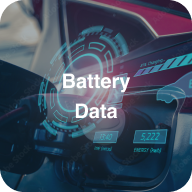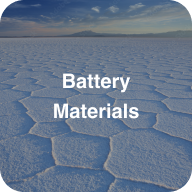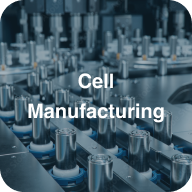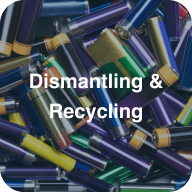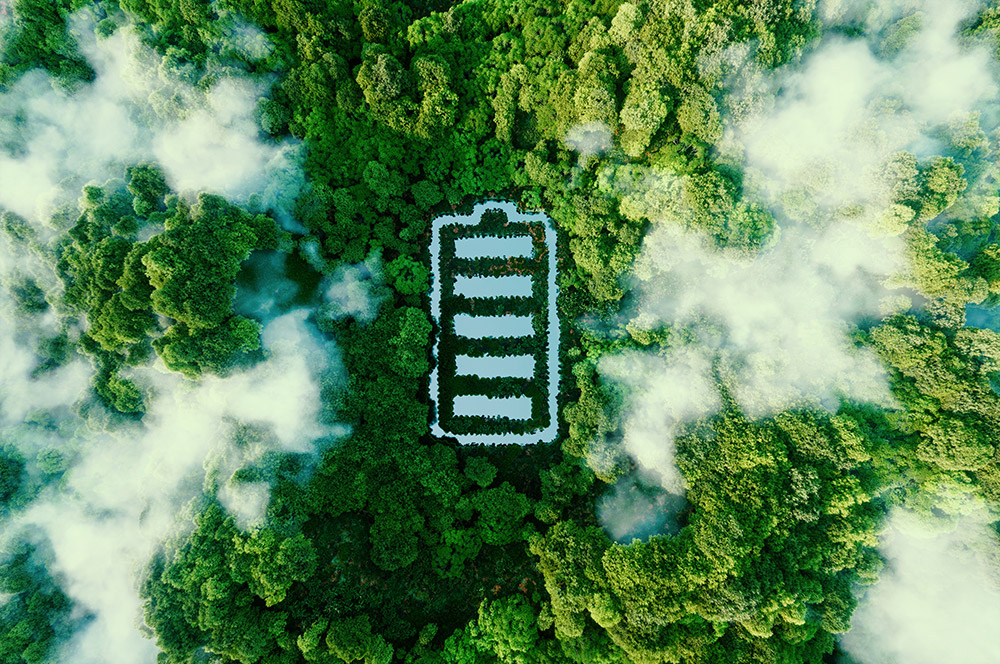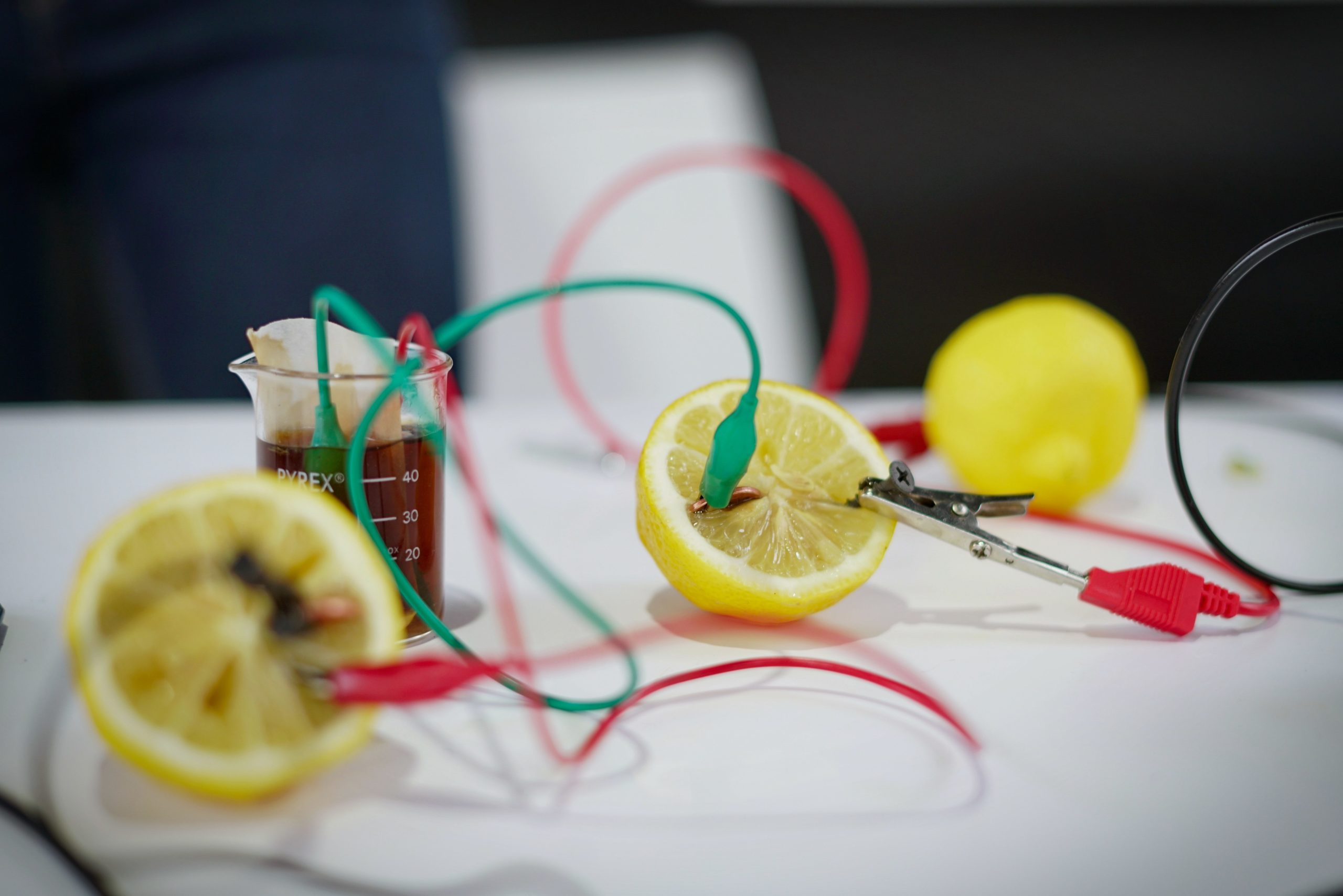Online Expert Talk: »From Road to Cloud: Real-World Insights on Lithium-Ion Battery Monitoring« | May 6th, 2025 from 2 pm – 3 pm
Boost your career with our battery online course
Official qualification: Fraunhofer Certificate
After successfully passing the final exam, participants of the EBBC online training course receive an official Fraunhofer certificate issued by the Fraunhofer Personnel Certification Authority in accordance with DIN EN ISO/IEC 17024.
These certificates are not just achievements; they are the gateway to new career opportunities in the evolving battery industry!

Why is the certificate attractive?
Fraunhofer certificate: Proven expertise and a boost for new career opportunities.
After successfully passing the final examination, participants receive a certificate that attests the learners proven competence and relevant, innovative practical knowledge in the field of battery storage.
This examination is conducted by the independent examination centre of the Fraunhofer Personnel Certification Authority. The German Accreditation Body (DAkkS) confirms the competence of the Fraunhofer Personnel Certification Centre to certify training participants in accordance with DIN EN ISO/IEC.
Expand your career path opportunities
Current and relevant knowledge, provided by various Fraunhofer Institutes from Germany and the universities of Ljublana and Uppsala.
Exclusive insights into successful industrial companies from the battery sector: ACC, Northern Graphite and Orano.
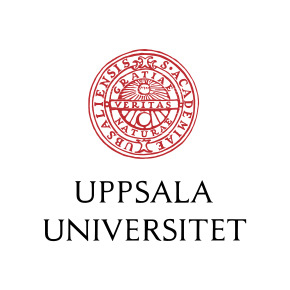
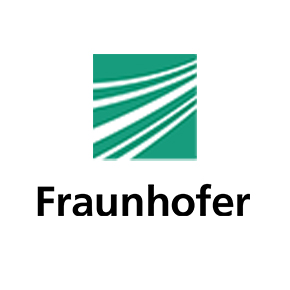
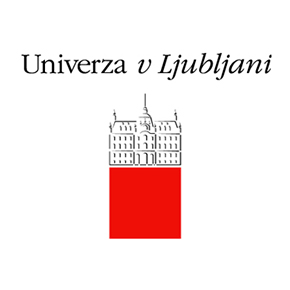


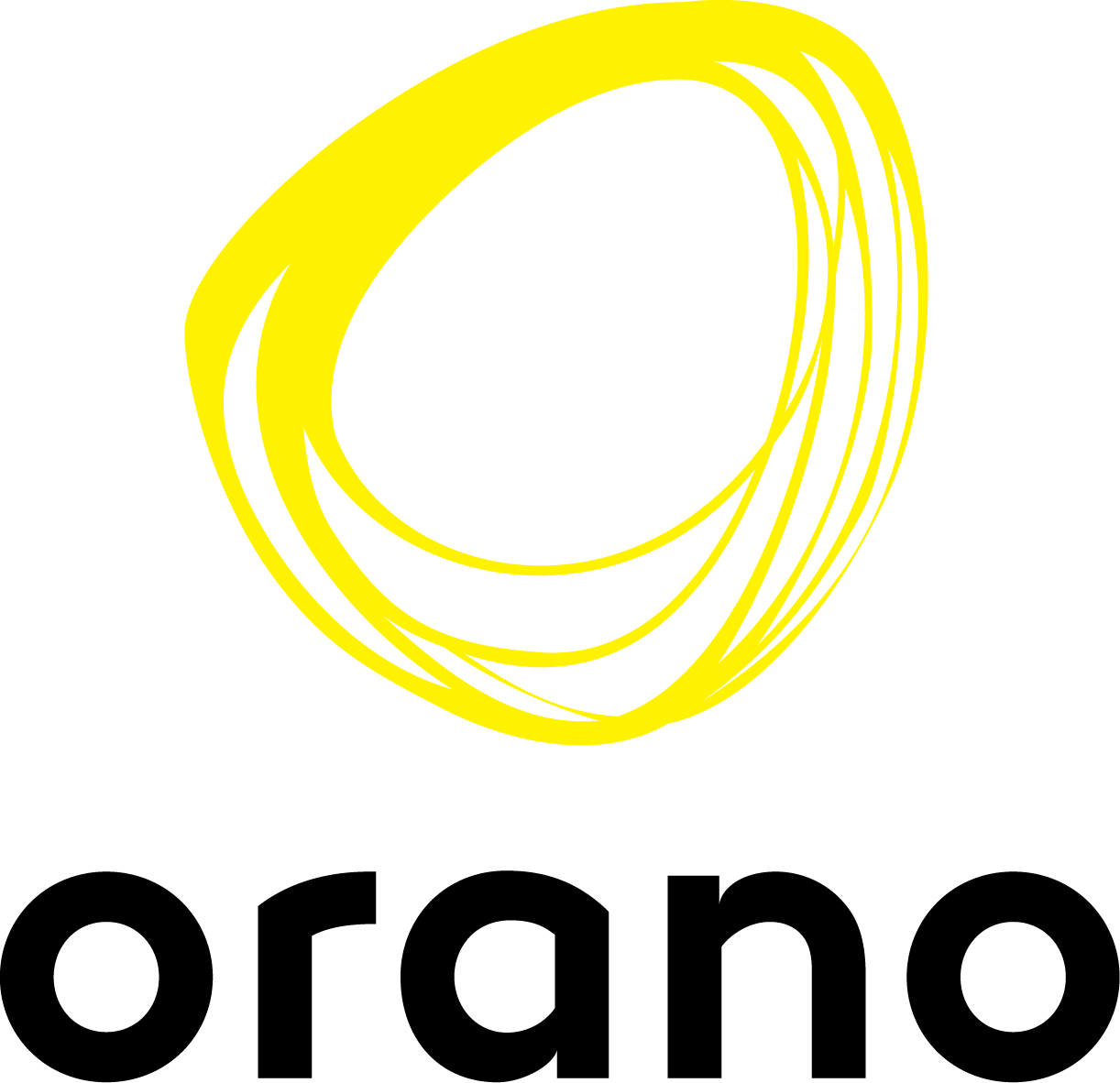
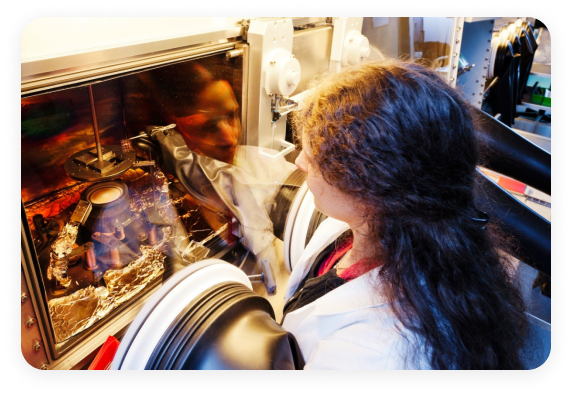
What people are saying
Our trainers: leading experts from both research and industry
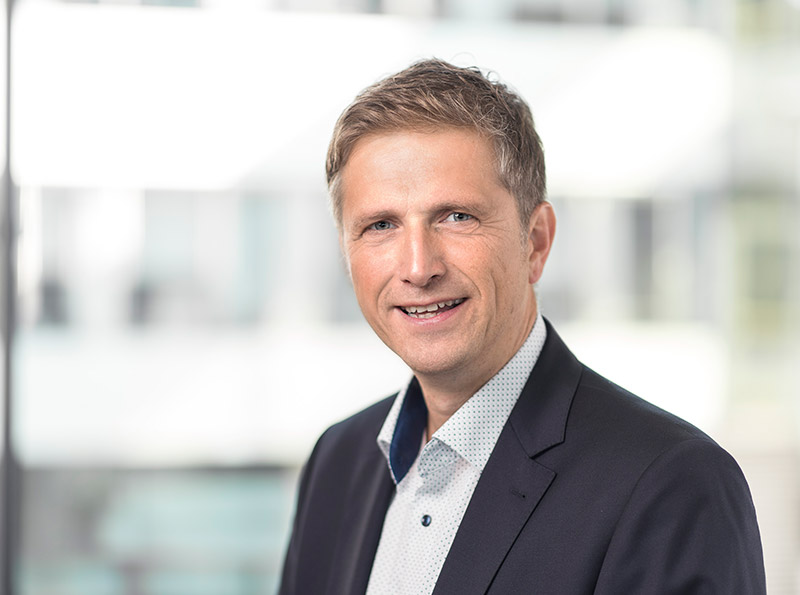
I studied physics at the University of Ulm and Kiel with University degree in Physics from the University of Kiel, Germany. Ph.D. in material science with focus on all solid state batteries with special research interests in solid state electrolytes for lithium ion batteries at the chair for Sensors and Solid State Ionics at Christian-Albrechts-University of Kiel.
After doctorate working as R & D Project Manager in semiconducting industry. In 2007 I joined the Fraunhofer Institute for Manufacturing Technology and Advanced Materials IFAM in Bremen and since 2009 I am head of department for Electrical Energy Storage. The research interests are in the field of component and system development for electrical energy storage technologies and their applications. The special focus is on next generation batteries and the associated manufacturing technologies.
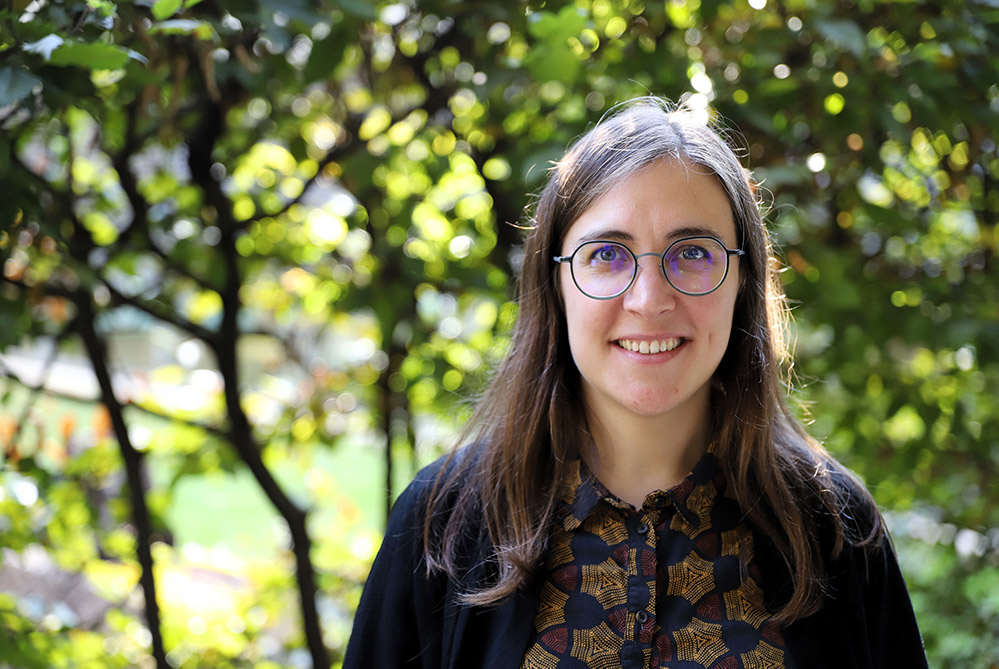
Dr. Guiomar Hernández
Assistant Professor
Uppsala University’s Department of Chemistry – Ångström Laboratory
Hi, I’m Dr. Guiomar Hernández, an Assistant Professor at Uppsala University’s Department of Chemistry – Ångström Laboratory.
My expertise lies in materials for advanced battery technologies. I completed my Ph.D. in Applied Chemistry and Polymeric Materials, focusing on energy storage solutions at the University of the Basque Country in Spain. My current research at Uppsala University involves developing materials mainly for lithium and sodium-based batteries, focusing on silicon anodes, liquid and solid polymer electrolytes, with a keen interest in safe and sustainable solutions.
Alongside research, I am also committed to mentoring students and researchers in chemistry and material science. I’m passionate about contributing to sustainable energy advancements and look forward to sharing my knowledge in this field.
Guiomar on Linkedin →
Guiomar on Twitter →
Read more about Guiomar →
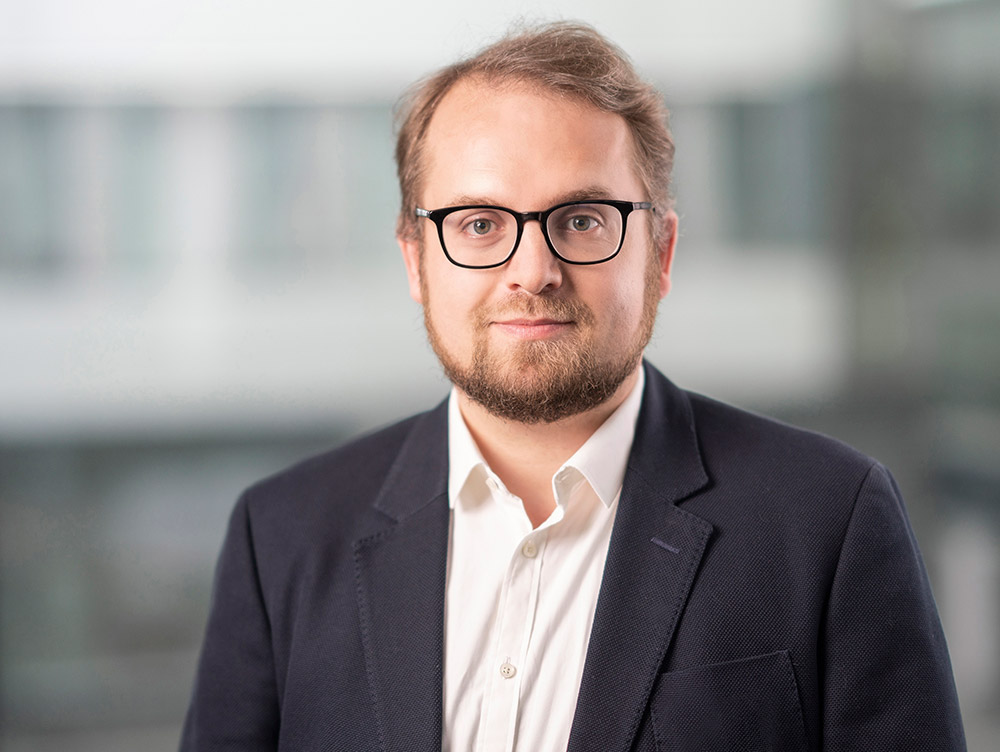
Since 2019 I am working as a project manager at Fraunhofer IFAM in Bremen. In the Electrical Energy Storage department, I work on the synthesis of innovative battery materials of the latest generation, their integration into electrochemical cells and the characterization of battery cells and modules.
Before that, I worked as a research assistant in the research group “Innovative Sensor and Functional Materials” at the University of Bremen from 2014 to 2018. From 2010 to 2014, I was a PhD student at the Interdisciplinary Center for Materials Science at the University of Halle/Wittenberg. My dissertation dealt with investigations on the morphology and composition of 0-3 composite dielectrics of novel capacitors for energy storage.
Before my doctorate, I completed my Master of Science Materials Science at the University of Leipzig. I also obtained my Bachelor of Science in Chemistry at the University of Leipzig.
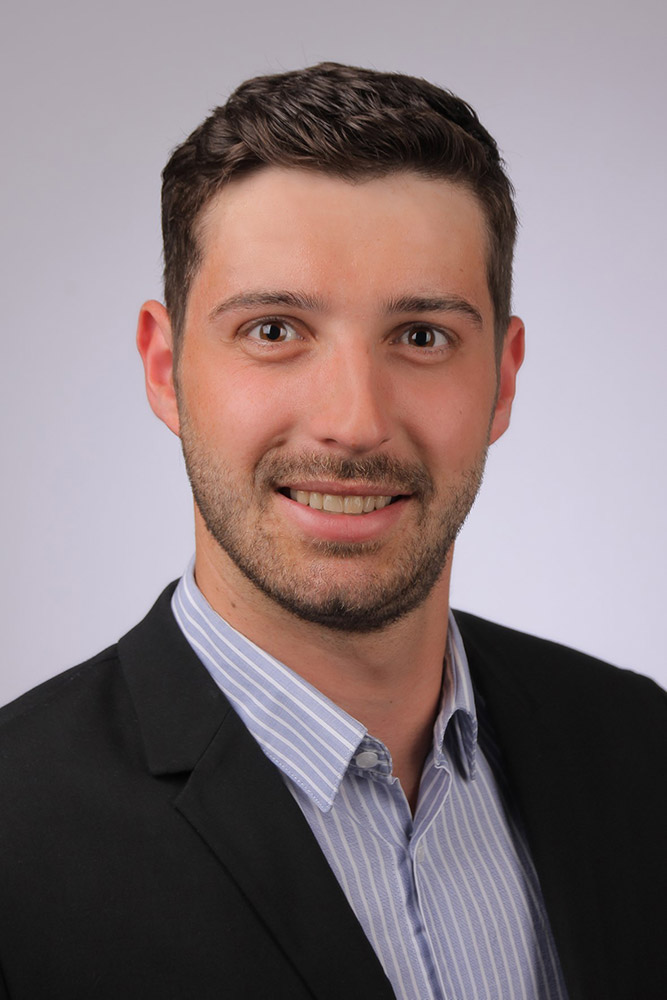
Hi, my name is Tim Wicke and I’m a process engineer from Karlsruhe. I started at Fraunhofer ISI’s Competence Center for Emerging Technologies in May 2021 as research associate and PhD candidate.
There in my day-to-day project work, I mainly deal with analyzing market demands and technical trends in energy storage and electric mobility. Next to that, my doctoral thesis is about a multi-criteria technology assessment of lithium-ion battery manufacturing plants.
Before my job as a scientist at Fraunhofer ISI, I studied at the Karlsruhe Institute of Technology. During my studies, I immersed myself in energy topics like fuel cells and batteries. As part of this I gained practical experience during internships at the Öko-Institut in Freiburg and the company Sunfire Fuel Cells in Neubrandenburg.
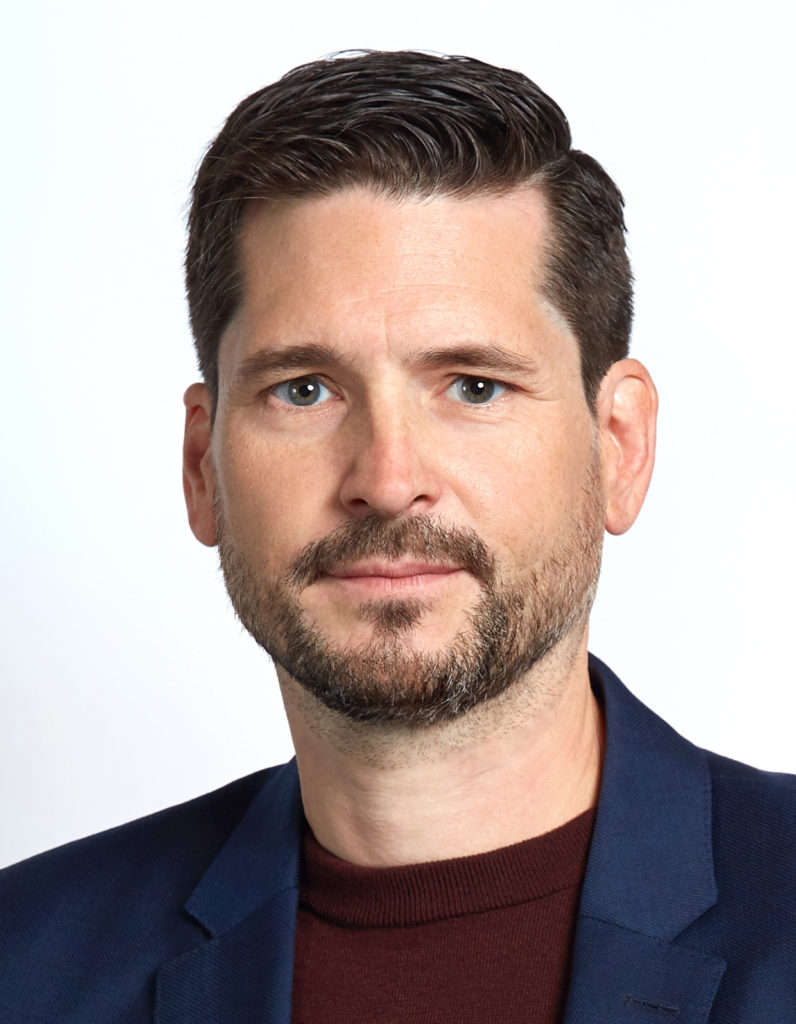
I delved deeper into the field, earning my Ph.D. at the Institute of Nanotechnology, University of Karlsruhe, where I specialized in nanotechnolgy in the field of molecular electronics. After my doctorate, I briefly worked as a patent engineer, bridging the gap between research and practical application.
Since 2007, my career has been anchored at the Fraunhofer Institute for Systems and Innovation Research ISI. Here, I’ve played a pivotal role in emerging technologies such as nanotechnology and battery technology research, leading projects and coordinating initiatives.
Currently, I’m at the forefront of battery technology supporting the German BMBF with accompanying research on battery technology development, as guest of the German Battery Research Advisory Board (Beirat Batterieforschung Deutschland), and as the co-lead of the Task Force “Education & Skills” in the Battery Europe Partnership Association BEPA. With my I intend to foster innovation and help shaping the future of these fields.
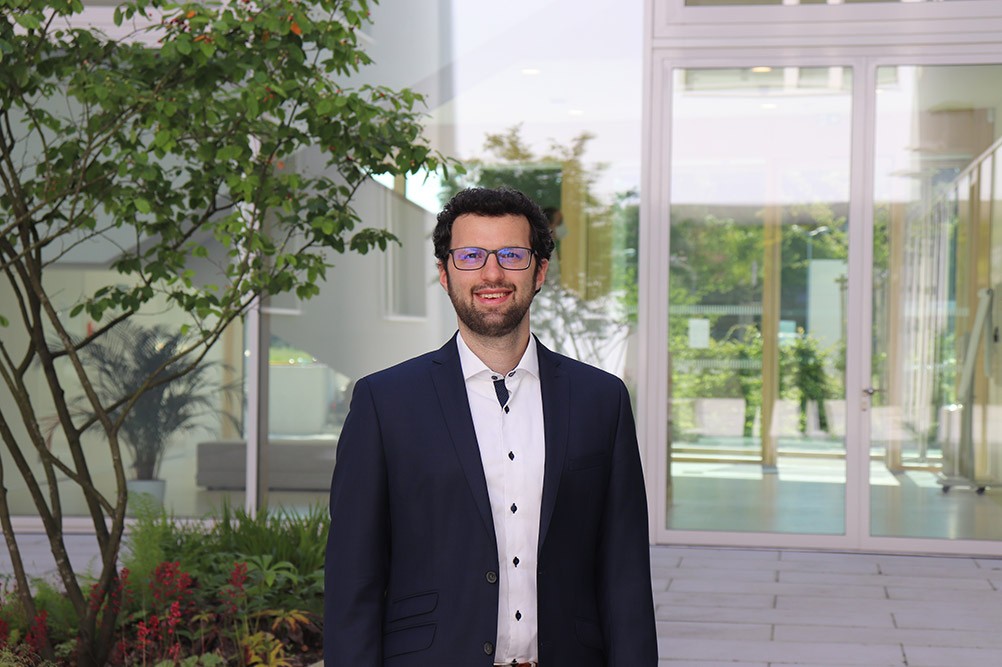
I studied chemistry at the Karlsruhe Institute of Technology (KIT) with a focus on physical chemistry and electrochemistry. I already worked on electrical energy storage devices during that time, fuel cells and redox flow batteries.
Afterwards, I took a detour to electrochemical recycling during my PhD. At the University of Stuttgart in cooperation with Fraunhofer Institute for Manufacturing Engineering and Automation IPA, I recovered neodymium from permanent magnets.
I work at Fraunhofer Research Institution for Materials Recycling and Resource Strategies IWKS in Hanau since 2018. I started as a researcher and project leader in battery recycling with a focus on end-of-life electrochemical testing, dismantling and mechanical fragmentation of lithium-ion batteries. We developed a unique recycling process for black mass with high purity output. We successfully transferred the technologies to the recycling of proton exchange membrane fuel cells (PEMFC) which became an additional field of my research. At Fraunhofer, we typically work in pilot scale instead of laboratory scale to enable a quick transfer of our technologies to industry.
In the EBBC project, I am responsible for all technological input in Track 3 concerning battery recycling. My experience was basis of several videos in this track to give you a hands-on impression of battery recycling processes.
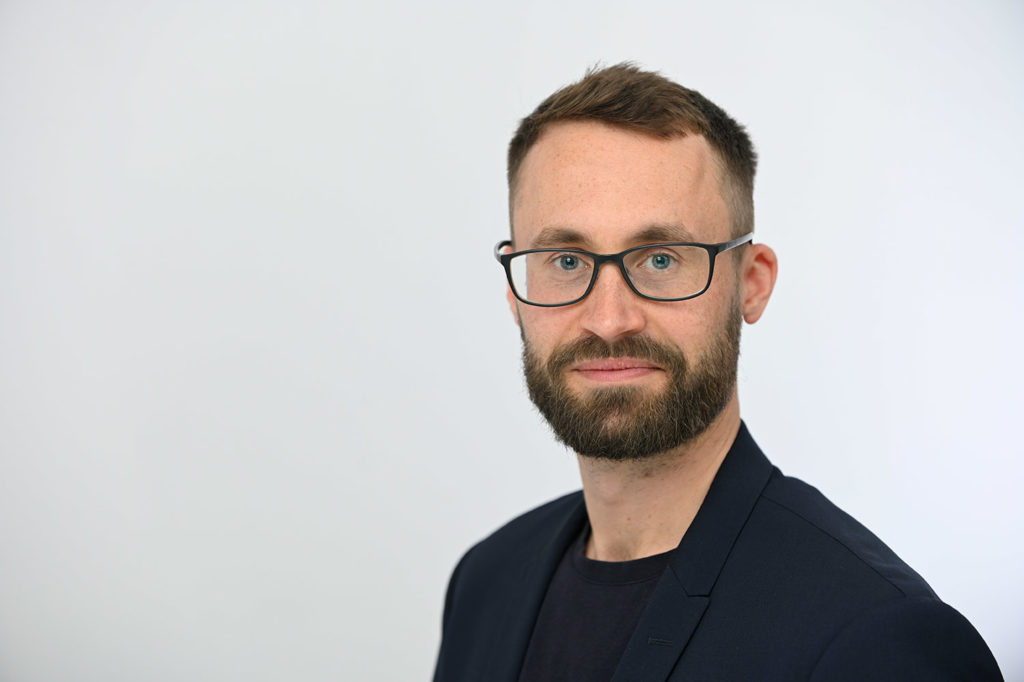
I am a senior scientist and project manager at Fraunhofer Institute for Systems and Innovation Research ISI where I am involved in research projects on the analysis of new technologies and emerging markets.
I did my PhD in the field of solid-state physics and Li-ion batteries. Specifically, I investigated how novel cathode materials such as Li(Mn,Fe)PO4 and LiCoPO4 can be synthesized and optimized for energy storage applications. During my post-doc, I managed the laboratory for synthesis and crystal growth at the Kirchhoff Institute for Physics in Heidelberg and oversaw research activities on the growth of mm-sized to nm-sized crystals.
At Fraunhofer ISI, I was able to continue my interest in battery research and have been working on the industrial implementation of new technologies ever since. One of my main focuses is still in the field of cathode materials, but I am now also privileged to work on the topics of battery cell production and battery recycling as well. I enjoy passing on the knowledge I have gained there in the context of industry and political consulting.
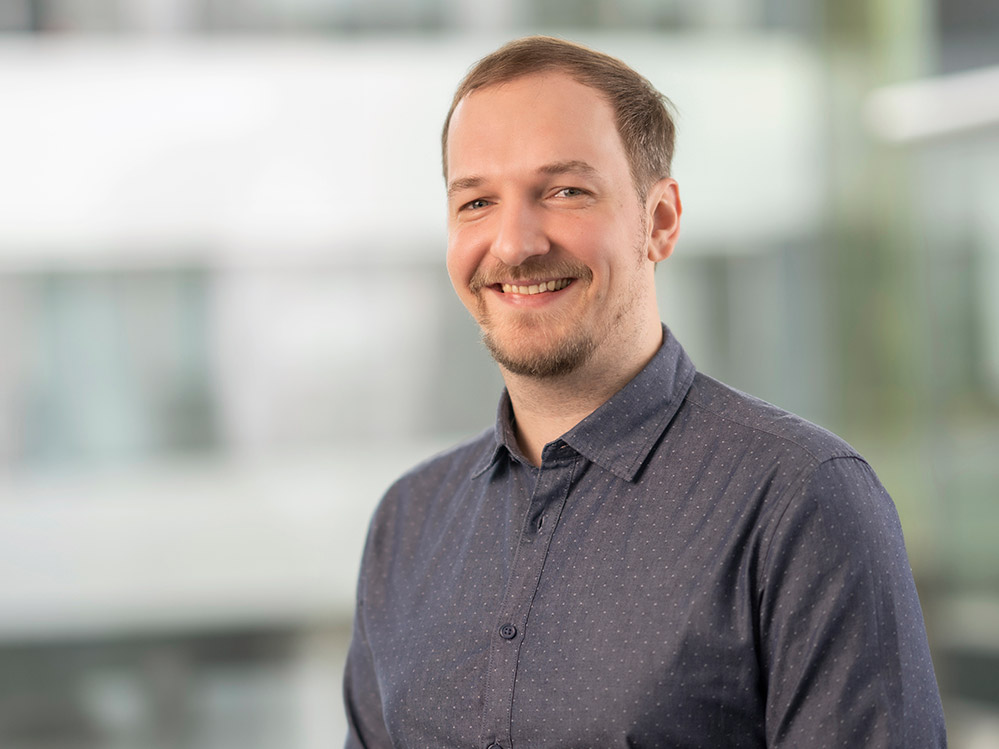
Hello, I am Marcel Reisch, a Scientist and Project Manager at the Fraunhofer Institute for Manufacturing Technology and Advanced Materials IFAM. My expertise lies at the intersection of scientific research and project leadership.
I completed my master’s degree at Fraunhofer IFAM, with the focus on Zink-Ion-Batteries. Specifically, my research has centred around the production and analysis of large-scale electrodes, with a particular focus on parameter identification for ensuring the long-term viability of scalable Zink-Ion-cell systems.
Since January 2022 I started my dual role as a scientist and project manager, where I actively lead research projects in the wide and dynamic field of electrical energy storage. I am practically involved in the development and production of the complete process chain of the battery production from the starting powder to the complete assembly of the cell on a laboratory scale up to the electrochemical analysis.
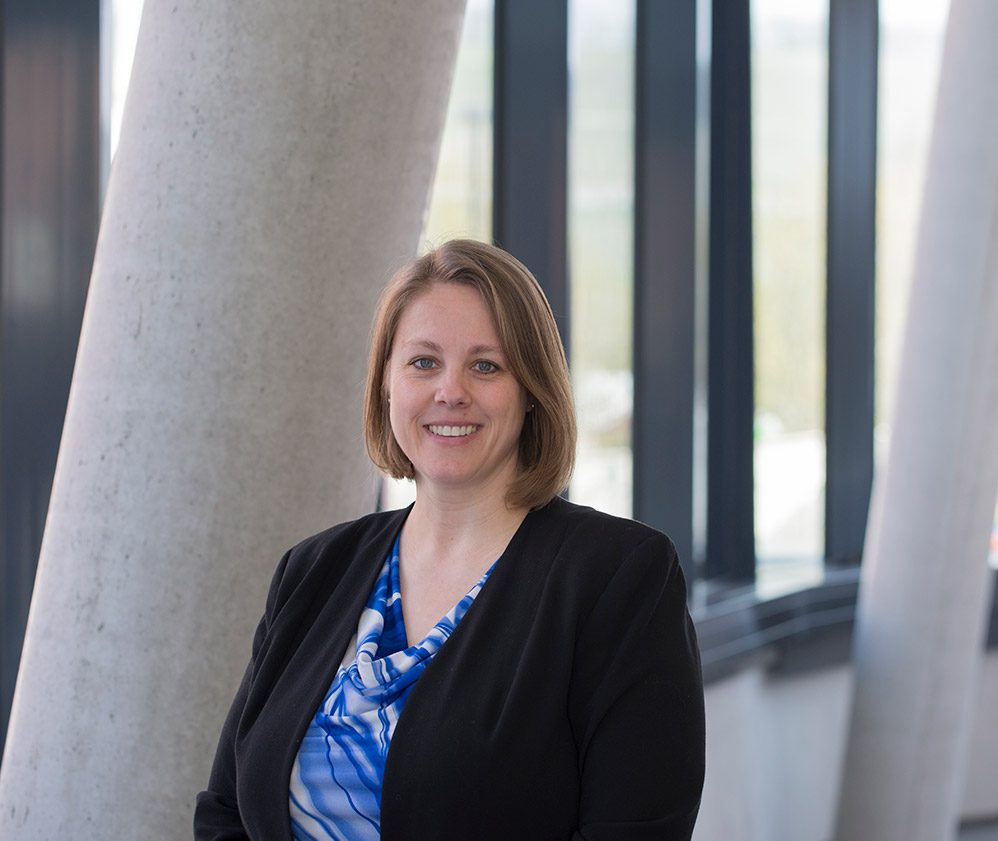
I finalized my Ph.D. in Chemistry at the University of Oklahoma, USA, in May 2009. Since October 2019, I´m a habilitation candidate at the faculty of Chemistry and Pharmacy at Julius Maximilians University of Würzburg.
I have over 10 years of experience in development and characterization of materials for electrochemical conversion and storage applications. My current position is scientific head of Fraunhofer R&D Center for Electromobility Bavaria. In parallel, I´m working as a lecturer at the University of Würzburg on Electrochemical Energy Storage and Conversion.
The collaboration in many EU, German and Industrial Projects on Battery Materials and Components is another professional focus.
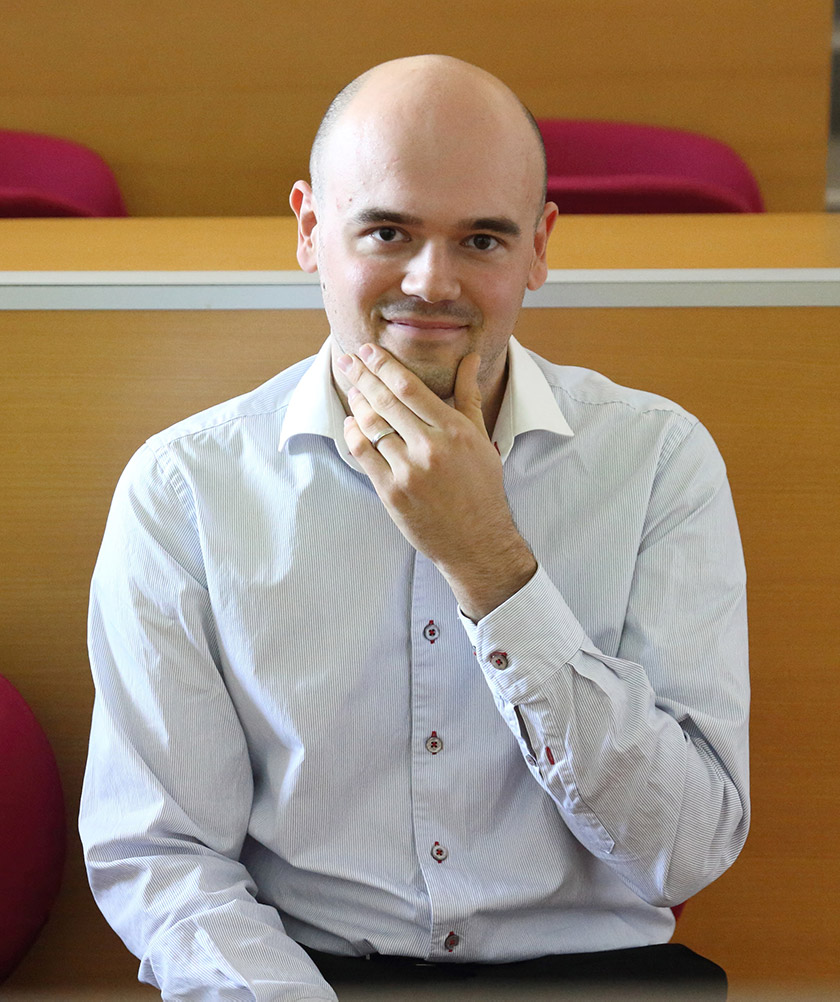
Already since my very young age I was very interested in chemistry and participated in International Chemistry Olympics as a high school student. Hence, the decision to study chemistry at University was very simple. After finishing my degree at the University of Ljubljana, I moved to the National Institute of Chemistry, where I got involved in the battery research.
Focus of my PhD were Mg rechargeable batteries, where we opened a new path of development through application of organic cathode materials in these systems. During my PhD is spent extensive time at Chalmers University of Technology in Sweden and Argonne National Laboratory in US.
After my PhD I started working on other multivalent systems and expanded my field of work to Al and Ca metal anode batteries. Besides searching for new better battery materials, I am also developing new characterization tools such as operando ATR-IR. I have long-term experience with working on industry funded project through developing Mg-organic batteries for Honda R&D.
Currently, I am working on different national and European research project focused on development of multivalent batteries, organic materials and new characterization tools.
Jan on Linkedin →
Jan about his expertise (video) →
Read more about Jan →
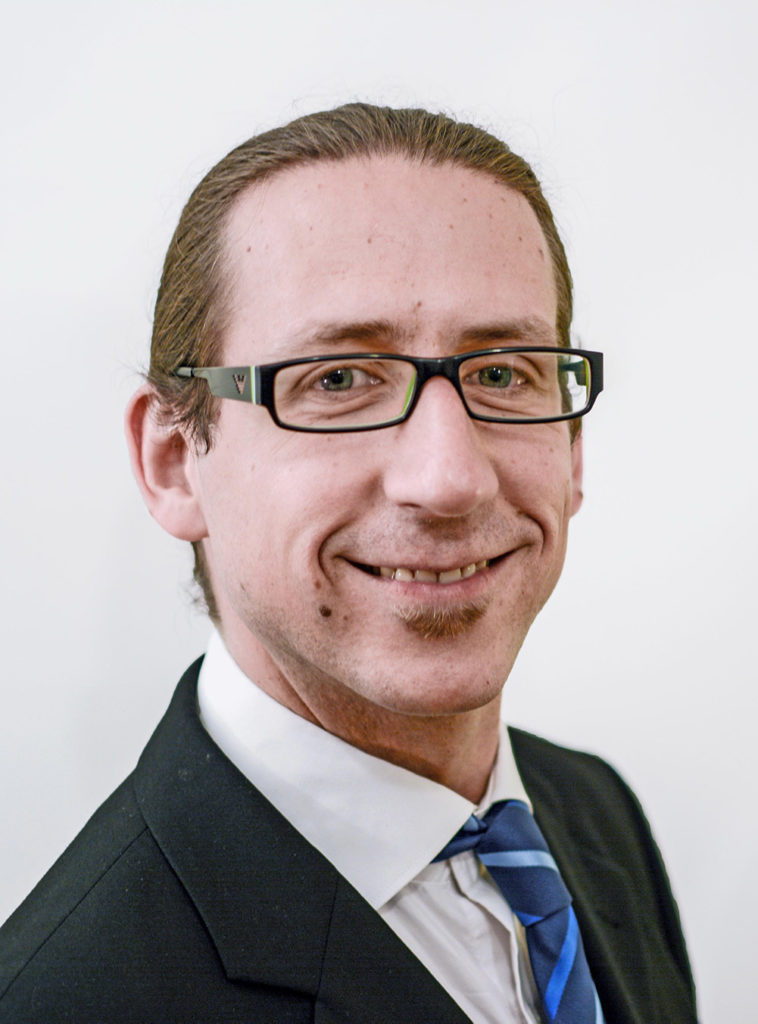
Hi, I’m Thomas Schmaltz, a materials scientist with a diploma from the Friedrich-Alexander-Universität Erlangen-Nürnberg (FAU). In my studies I focused on functional materials for energy applications and on polymer materials. During my PhD at the FAU, I investigated self-assembled organic materials in electronic devices.
Afterwards, I joined the École Polytechnique Fédérale de Lausanne (EPFL) in Switzerland as a postdoctoral researcher. Besides from academic research, I was heavily involved in teaching activities.
In 2018, I joined the Fraunhofer Institute for Systems and Innovation Research ISI. At the ISI, I am investigating and analyzing scientific-technical developments and application scenarios of emerging technologies in the fields of microelectronics, quantum technologies, battery technologies and materials science.
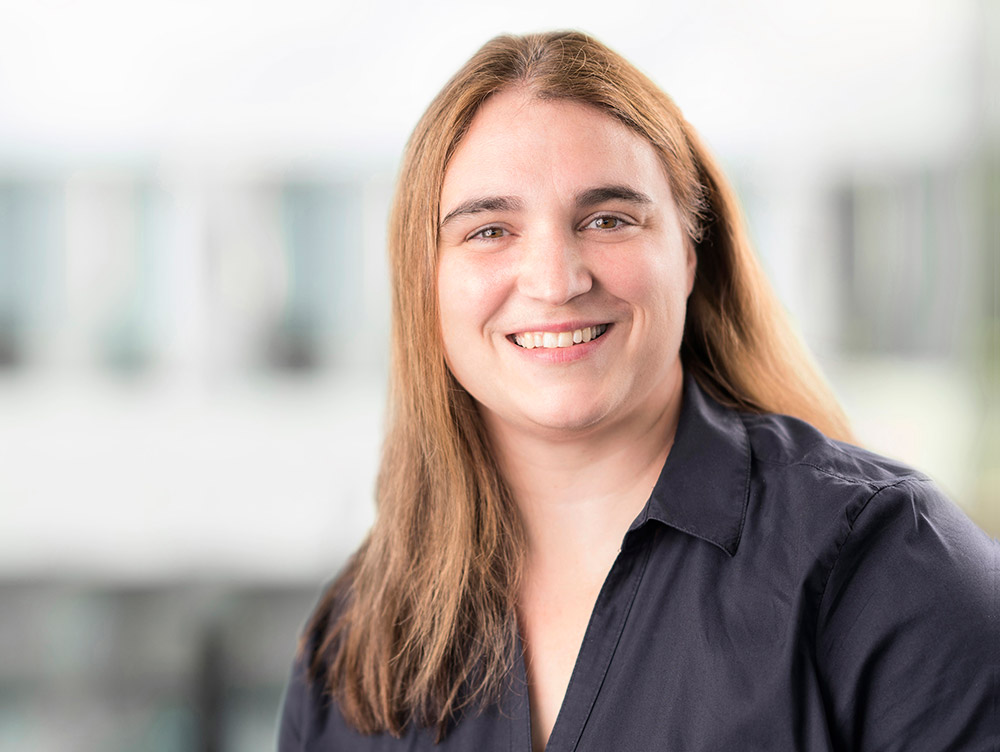
Hello, I am Daniela Fenske. I finalized my Ph.D. in Chemistry at the University of Oldenburg in 2009. In that year I joined the Fraunhofer Institute for Manufacturing Technology and Advanced Materials IFAM being part of the buildup of the energy storage labs and facilities from scratch.
My current position is Group Leader for new electrochemical technologies and cell diagnostics in the Energy Storage Department. The focus lays in the development of novel, sustainable battery technologies – from material to the cell and a digitization strategy for an efficient and sustainable use of battery data.
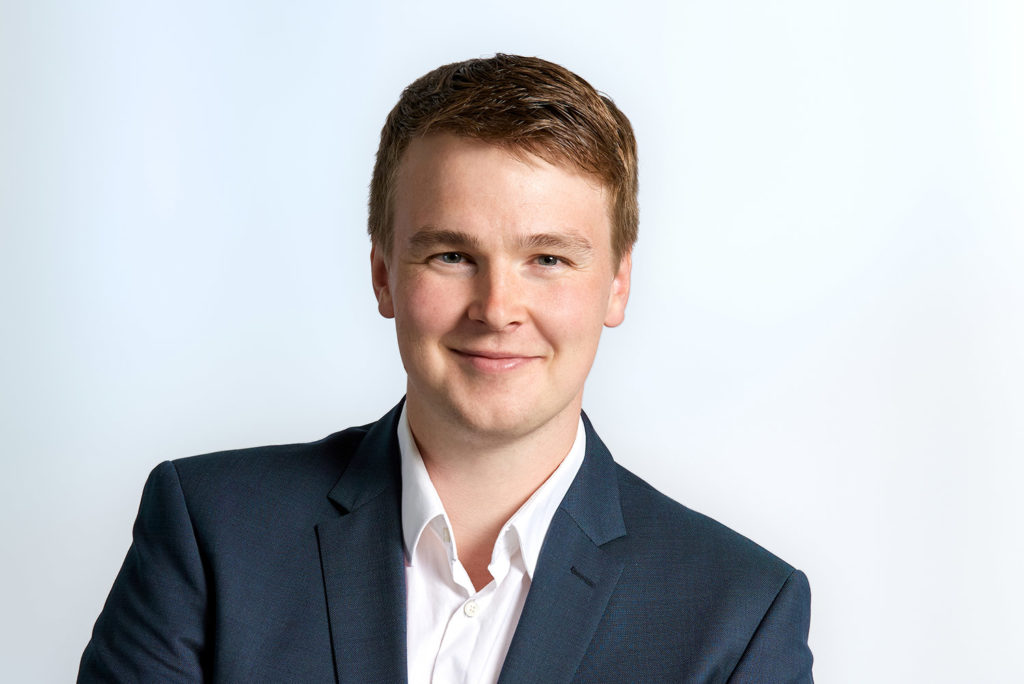
Hi, I’m Lukas Weymann, a physicist with a journey starting at Leibniz Universität Hannover, leading to a master’s at the Max Planck Institute for Gravitational Physics, where I researched gamma rays and pulsars. I then pursued a PhD in solid-state spectroscopy at the Vienna University of Technology, focusing on magnetoelectric materials.
Passionate about science communication, I’ve been editing the “5MinutenClimateChance” podcast since 2020, emphasizing climate change and sustainability. This commitment earned me the Austrian Environmental Journalism Award and the Austrian SDG Award in 2020.
Since May 2021, I’ve been at Fraunhofer ISI’s Competence Center for New Technologies, working on lithium-ion battery technology and analyzing market demands in energy storage and electric mobility. This role blends my scientific background with practical applications, addressing current technological challenges.
Lukas about EBBC (video) →
Lucas about his expertise (video) →
Read more about Lucas →
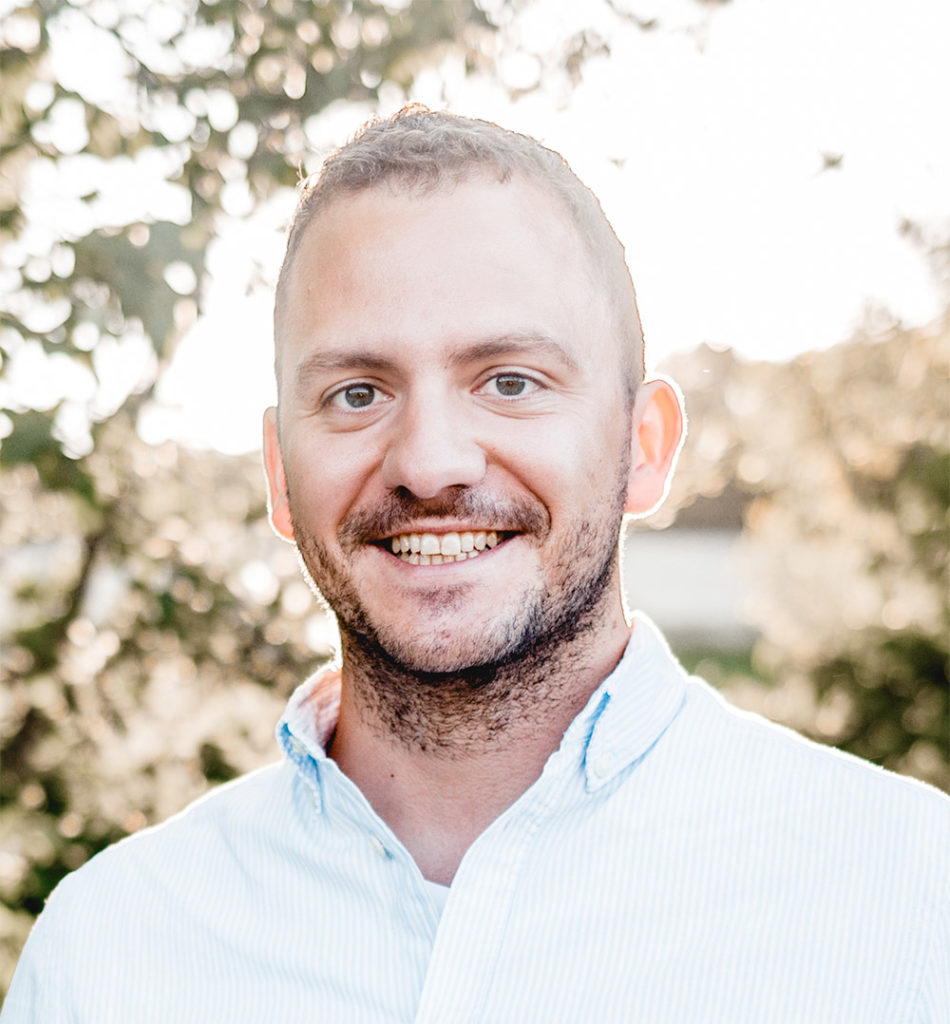
Hi, I’m Maximilian Stephan. My academic background is in Economics at the Ruprecht Karl University of Heidelberg and Business Administration and Engineering at the University of Applied Sciences in Pforzheim and Karlsruhe, the latter of which I graduated with a Master’s degree in 2021. During my studies, I gained industrial experience in the automotive sector and started my academic journey as a student assistant at the Fraunhofer Institute for Systems and Innovation Research ISI in 2020.
I delved deeper into the field of battery technology research, battery (application) markets and battery value chain analysis and have been working as a research associate in this field since December 2021. My intented PhD thesis deals with the multi-criteria assessment of emerging battery technologies for sustainable battery value chains.
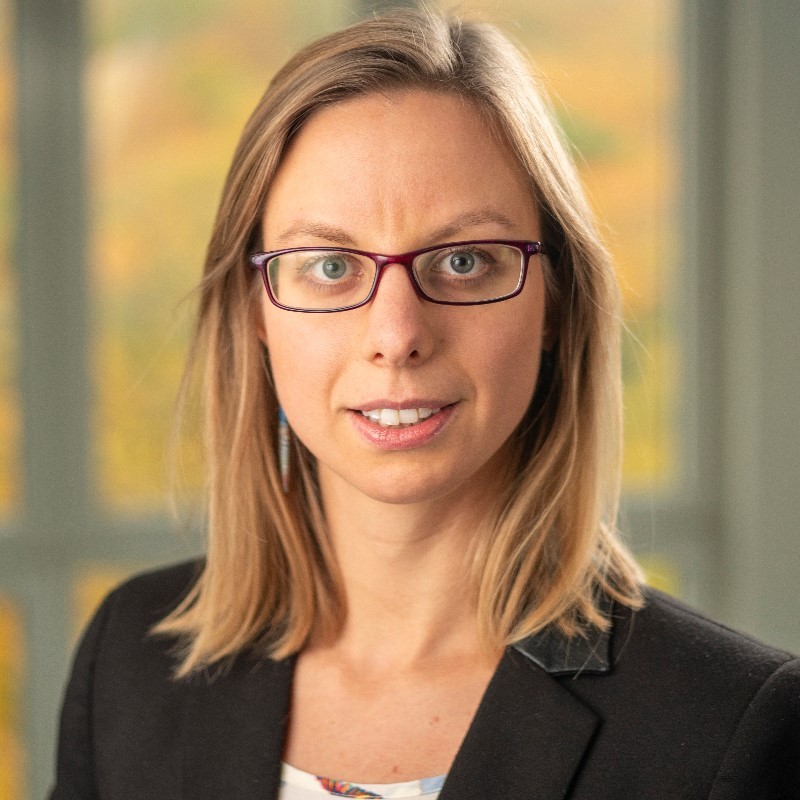
I’m an energy engineer with a broad knowledge in renewable energy generation and storage technologies. Driven by my love for nature, my affinity to technology and the vision of living in a sustainable system, I studied renewable energy and energy management. During my Master at the technical university Darmstadt, I deepened my knowledge in the method of life cycle assessment (LCA). With LCA we are able to determine the ecological impact of a product, service or process over his whole life cycle. This allows us to identify the biggest levers in terms of ecological impact and find the most efficient way to change.
After gaining two years of experiences in the solar industry sector, I started my scientific career 2022 at the Fraunhofer Institute for Material Recycling and Resource Strategies IWKS.
My work focused above all on the ecological impact of new recycling processes for lithium-ion batteries including research, measurements and assessments.
With my work I intend that the ecological aspect of a process is taken into consideration in an early stage of process development and into decision making of industries.
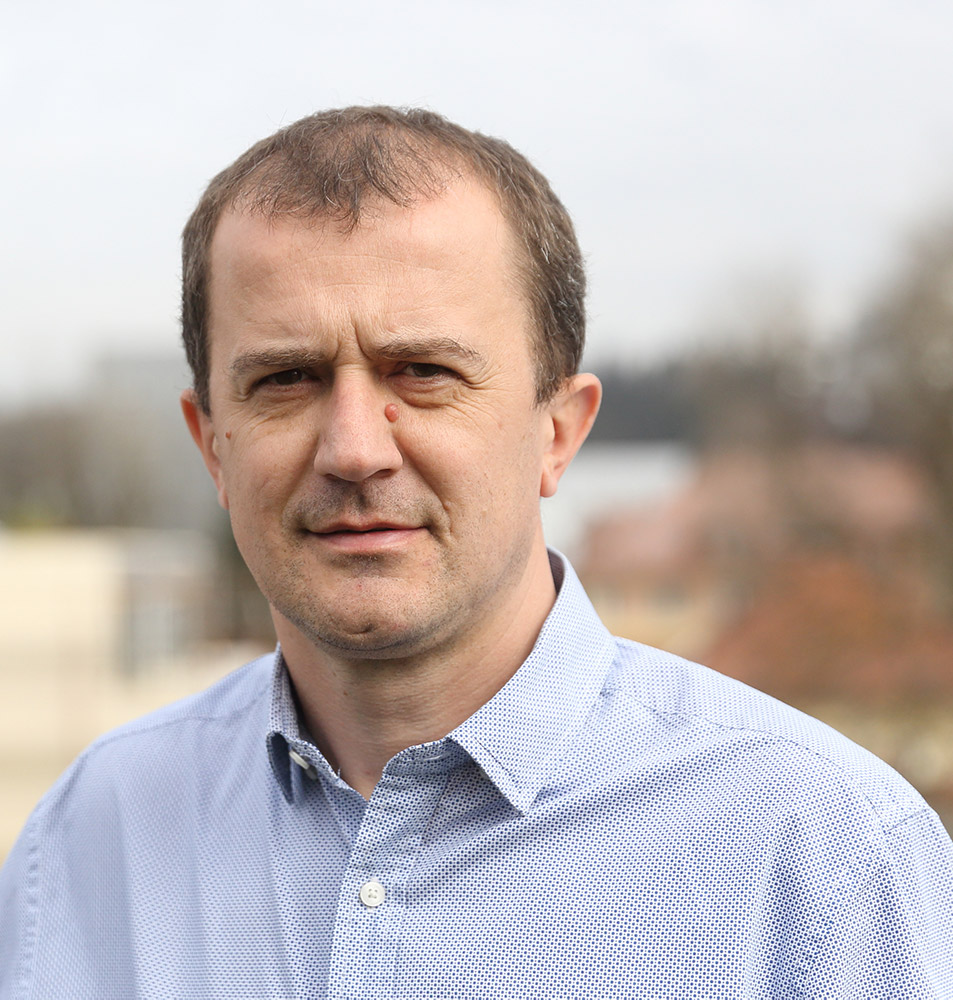
I am a chemical engineer with a strong focus on material science, characterization, and engineering with expertise in material science for more than 25 years.
After obtaining a Ph.D. in Materials sciences in 2002 from the University of Ljubljana on the topic of implementation of water-based binders and optimizing electrochemical wiring, I continued to work in the field of materials science and electrochemical systems for energy storage, with main activities in the field of modern battery systems.
Between 2009 and 2010 I worked in Universite Picardie Jules Verne, Amiens, where we started the development of Li-S batteries. As a result of the starting activities in France, we continued to develop the Li-S batteries through two EU projects, where I acted as a coordinator. My current research interests are focused on different types of multivalent batteries and the implementation of smart functionalities in battery cells. Additionally, I am leading the establishment of a large infrastructure center in Slovenia with pilot prototyping equipment for battery cells, hydrogen economy, and power to X infrastructure.
Besides being a leader of the battery group at NIC and head of the new infrastructure center, I am a full professor at the University of Ljubljana in materials science. I am a deputy director of the ALISTORE-ERI network and a member of the core group within the Battery 2030+ initiative and with Batteries Europe, where I am one of the co-leaders of the task force preparing a strategy on the education level. I am involved in the MESC master program (https://mesc-plus.eu/ ) and the doctoral school DESTINY (https://www.destiny-phd.eu/ ). Both educational progrmas are related to science and technology in the field of materials for energy storage and conversion. I am a member of the Slovenian Academy of Engineering.
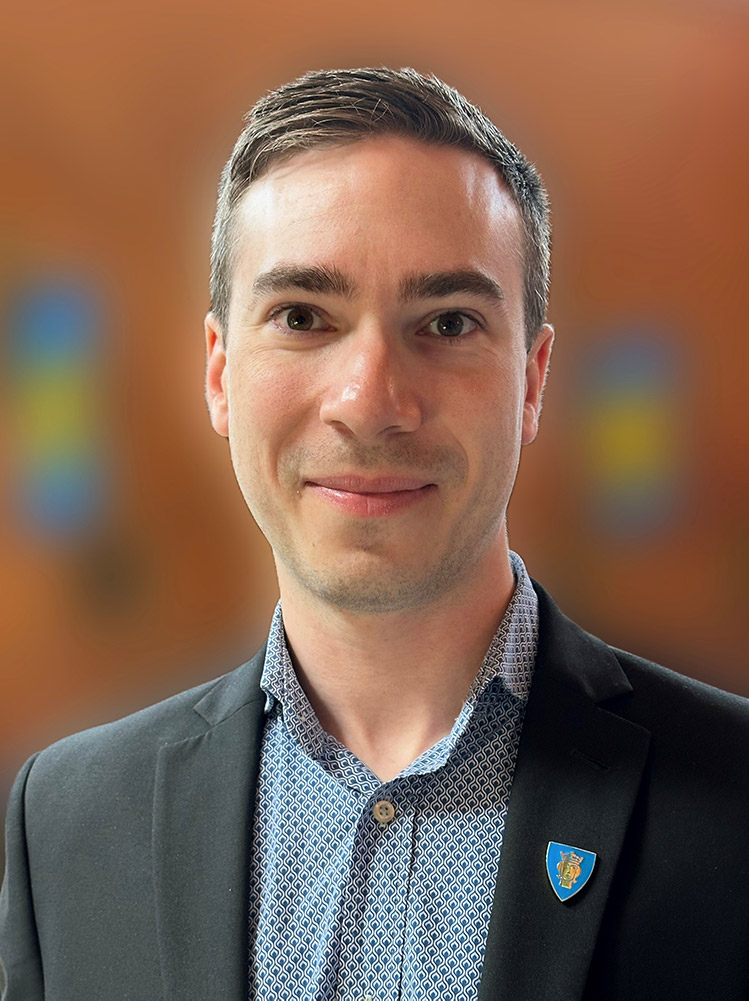
Dr. Andy Naylor
Researcher
Uppsala University
I was awarded my PhD degree in Chemistry by the University of Southampton, UK in 2014, where I had also previously completed undergraduate studies. For my doctoral research, I specialised in electrochemistry and energy conversion materials. Afterwards, I performed postdoctoral research at the University of St Andrews and then University of Oxford with Prof. Sir Peter Bruce, studying battery electrode materials and interfacial reactions with the electrolyte using spectroscopic characterisation techniques.
I moved to the Department of Chemistry – Ångström Laboratory at Uppsala University in 2017 as a postdoc, and then later was appointed as Researcher and then Docent in 2022. Currently, my interests are in the study of battery interfacial chemistry, principally for next-generation technologies, including novel materials for lithium-ion and the development of sodium-ion batteries. A particular focus is in the use and development of surface analysis characterisation techniques, especially in the investigation of new electrode materials and electrolytes for more sustainable battery technologies.
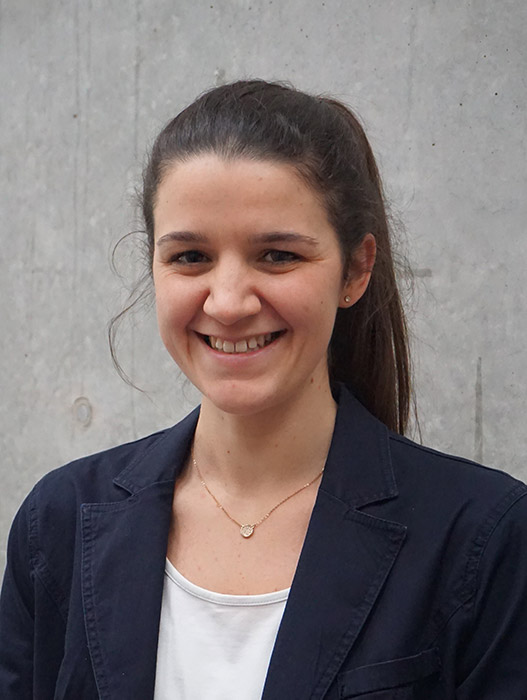
I am Leonie Wenzel, as an environmental engineer in the department “Digitalization of Resources” specializing in waste and recycling management. After completing my Master’s degree in 2022, I started working as a research assistant at Fraunhofer IWKS in Alzenau.
In my work, I am involved in various projects to promote the circular economy. In the group, we deal with separation and sorting technologies with the aim of improving the processes of mixed material flows and the recovery of raw materials from these flows. We also specialize in the life cycle assessment of products and processes. Regarding Lithium-Ion-Batteries we are not only focusing on the fragmentation but also on the recovery on the solid materials even up to deal with the waste waters.
Our experts

I finalized my Ph.D. in Chemistry at the University of Oklahoma, USA, in May 2009. Since October 2019, I´m a habilitation candidate at the faculty of Chemistry and Pharmacy at Julius Maximilians University of Würzburg.
I have over 10 years of experience in development and characterization of materials for electrochemical conversion and storage applications. My current position is scientific head of Fraunhofer R&D Center for Electromobility Bavaria. In parallel, I´m working as a lecturer at the University of Würzburg on Electrochemical Energy Storage and Conversion.
The collaboration in many EU, German and Industrial Projects on Battery Materials and Components is another professional focus.

Since 2009, I am working in battery research and development at the Fraunhofer Institute for Manufacturing Technology and Applied Materials Research IFAM in Bremen. There I hold the position of Deputy Head of Department for Electrical Energy Storage and also lead the group for Material Development and Characterization. In our laboratory for the development of energy storage materials and battery cells we offer guidance and support in all aspects of material development and validation for electrical energy storage systems and battery cells. We have also set ourselves the goal of driving forward the digital transformation of battery research by taking a holistic view of all areas, from experimental data generation, intelligent data processing and analysis to the development of automated workflows.
Before working at the Fraunhofer Institute, I was a research assistant and doctoral student in the Physical Chemistry working group at the University of Oldenburg from 2005 to 2009. My scientific focus was on the synthesis, characterization and application of colloidal nanoparticles in heterogeneous catalysis, taking into account microscopic and macroscopic influences. I also studied chemistry at the University of Oldenburg and graduated with a degree in chemistry. In my diploma thesis I carried out adsorption studies of small molecules from the Fischer-Tropsch synthesis on PtCo alloy surfaces.

I studied physics at the University of Ulm and Kiel with University degree in Physics from the University of Kiel, Germany. Ph.D. in material science with focus on all solid state batteries with special research interests in solid state electrolytes for lithium ion batteries at the chair for Sensors and Solid State Ionics at Christian-Albrechts-University of Kiel.
After doctorate working as R & D Project Manager in semiconducting industry. In 2007 I joined the Fraunhofer Institute for Manufacturing Technology and Advanced Materials IFAM in Bremen and since 2009 I am head of department for Electrical Energy Storage. The research interests are in the field of component and system development for electrical energy storage technologies and their applications. The special focus is on next generation batteries and the associated manufacturing technologies.

I delved deeper into the field, earning my Ph.D. at the Institute of Nanotechnology, University of Karlsruhe, where I specialized in nanotechnolgy in the field of molecular electronics. After my doctorate, I briefly worked as a patent engineer, bridging the gap between research and practical application.
Since 2007, my career has been anchored at the Fraunhofer Institute for Systems and Innovation Research ISI. Here, I’ve played a pivotal role in emerging technologies such as nanotechnology and battery technology research, leading projects and coordinating initiatives.
Currently, I’m at the forefront of battery technology supporting the German BMBF with accompanying research on battery technology development, as guest of the German Battery Research Advisory Board (Beirat Batterieforschung Deutschland), and as the co-lead of the Task Force “Education & Skills” in the Battery Europe Partnership Association BEPA. With my I intend to foster innovation and help shaping the future of these fields.
See all experts

I am a chemical engineer with a strong focus on material science, characterization, and engineering with expertise in material science for more than 25 years.
After obtaining a Ph.D. in Materials sciences in 2002 from the University of Ljubljana on the topic of implementation of water-based binders and optimizing electrochemical wiring, I continued to work in the field of materials science and electrochemical systems for energy storage, with main activities in the field of modern battery systems.
Between 2009 and 2010 I worked in Universite Picardie Jules Verne, Amiens, where we started the development of Li-S batteries. As a result of the starting activities in France, we continued to develop the Li-S batteries through two EU projects, where I acted as a coordinator. My current research interests are focused on different types of multivalent batteries and the implementation of smart functionalities in battery cells. Additionally, I am leading the establishment of a large infrastructure center in Slovenia with pilot prototyping equipment for battery cells, hydrogen economy, and power to X infrastructure.
Besides being a leader of the battery group at NIC and head of the new infrastructure center, I am a full professor at the University of Ljubljana in materials science. I am a deputy director of the ALISTORE-ERI network and a member of the core group within the Battery 2030+ initiative and with Batteries Europe, where I am one of the co-leaders of the task force preparing a strategy on the education level. I am involved in the MESC master program (https://mesc-plus.eu/ ) and the doctoral school DESTINY (https://www.destiny-phd.eu/ ). Both educational progrmas are related to science and technology in the field of materials for energy storage and conversion. I am a member of the Slovenian Academy of Engineering.

Dr. Guiomar Hernández
Assistant Professor
Uppsala University’s Department of Chemistry – Ångström Laboratory
Hi, I’m Dr. Guiomar Hernández, an Assistant Professor at Uppsala University’s Department of Chemistry – Ångström Laboratory.
My expertise lies in materials for advanced battery technologies. I completed my Ph.D. in Applied Chemistry and Polymeric Materials, focusing on energy storage solutions at the University of the Basque Country in Spain. My current research at Uppsala University involves developing materials mainly for lithium and sodium-based batteries, focusing on silicon anodes, liquid and solid polymer electrolytes, with a keen interest in safe and sustainable solutions.
Alongside research, I am also committed to mentoring students and researchers in chemistry and material science. I’m passionate about contributing to sustainable energy advancements and look forward to sharing my knowledge in this field.
Guiomar on Linkedin →
Guiomar on Twitter →
Read more about Guiomar →

Since 2019 I am working as a project manager at Fraunhofer IFAM in Bremen. In the Electrical Energy Storage department, I work on the synthesis of innovative battery materials of the latest generation, their integration into electrochemical cells and the characterization of battery cells and modules.
Before that, I worked as a research assistant in the research group “Innovative Sensor and Functional Materials” at the University of Bremen from 2014 to 2018. From 2010 to 2014, I was a PhD student at the Interdisciplinary Center for Materials Science at the University of Halle/Wittenberg. My dissertation dealt with investigations on the morphology and composition of 0-3 composite dielectrics of novel capacitors for energy storage.
Before my doctorate, I completed my Master of Science Materials Science at the University of Leipzig. I also obtained my Bachelor of Science in Chemistry at the University of Leipzig.

Hi, my name is Tim Wicke and I’m a process engineer from Karlsruhe. I started at Fraunhofer ISI’s Competence Center for Emerging Technologies in May 2021 as research associate and PhD candidate.
There in my day-to-day project work, I mainly deal with analyzing market demands and technical trends in energy storage and electric mobility. Next to that, my doctoral thesis is about a multi-criteria technology assessment of lithium-ion battery manufacturing plants.
Before my job as a scientist at Fraunhofer ISI, I studied at the Karlsruhe Institute of Technology. During my studies, I immersed myself in energy topics like fuel cells and batteries. As part of this I gained practical experience during internships at the Öko-Institut in Freiburg and the company Sunfire Fuel Cells in Neubrandenburg.

I studied chemistry at the Karlsruhe Institute of Technology (KIT) with a focus on physical chemistry and electrochemistry. I already worked on electrical energy storage devices during that time, fuel cells and redox flow batteries.
Afterwards, I took a detour to electrochemical recycling during my PhD. At the University of Stuttgart in cooperation with Fraunhofer Institute for Manufacturing Engineering and Automation IPA, I recovered neodymium from permanent magnets.
I work at Fraunhofer Research Institution for Materials Recycling and Resource Strategies IWKS in Hanau since 2018. I started as a researcher and project leader in battery recycling with a focus on end-of-life electrochemical testing, dismantling and mechanical fragmentation of lithium-ion batteries. We developed a unique recycling process for black mass with high purity output. We successfully transferred the technologies to the recycling of proton exchange membrane fuel cells (PEMFC) which became an additional field of my research. At Fraunhofer, we typically work in pilot scale instead of laboratory scale to enable a quick transfer of our technologies to industry.
In the EBBC project, I am responsible for all technological input in Track 3 concerning battery recycling. My experience was basis of several videos in this track to give you a hands-on impression of battery recycling processes.

I am a senior scientist and project manager at Fraunhofer Institute for Systems and Innovation Research ISI where I am involved in research projects on the analysis of new technologies and emerging markets.
I did my PhD in the field of solid-state physics and Li-ion batteries. Specifically, I investigated how novel cathode materials such as Li(Mn,Fe)PO4 and LiCoPO4 can be synthesized and optimized for energy storage applications. During my post-doc, I managed the laboratory for synthesis and crystal growth at the Kirchhoff Institute for Physics in Heidelberg and oversaw research activities on the growth of mm-sized to nm-sized crystals.
At Fraunhofer ISI, I was able to continue my interest in battery research and have been working on the industrial implementation of new technologies ever since. One of my main focuses is still in the field of cathode materials, but I am now also privileged to work on the topics of battery cell production and battery recycling as well. I enjoy passing on the knowledge I have gained there in the context of industry and political consulting.

Hello, I am Marcel Reisch, a Scientist and Project Manager at the Fraunhofer Institute for Manufacturing Technology and Advanced Materials IFAM. My expertise lies at the intersection of scientific research and project leadership.
I completed my master’s degree at Fraunhofer IFAM, with the focus on Zink-Ion-Batteries. Specifically, my research has centred around the production and analysis of large-scale electrodes, with a particular focus on parameter identification for ensuring the long-term viability of scalable Zink-Ion-cell systems.
Since January 2022 I started my dual role as a scientist and project manager, where I actively lead research projects in the wide and dynamic field of electrical energy storage. I am practically involved in the development and production of the complete process chain of the battery production from the starting powder to the complete assembly of the cell on a laboratory scale up to the electrochemical analysis.

Already since my very young age I was very interested in chemistry and participated in International Chemistry Olympics as a high school student. Hence, the decision to study chemistry at University was very simple. After finishing my degree at the University of Ljubljana, I moved to the National Institute of Chemistry, where I got involved in the battery research.
Focus of my PhD were Mg rechargeable batteries, where we opened a new path of development through application of organic cathode materials in these systems. During my PhD is spent extensive time at Chalmers University of Technology in Sweden and Argonne National Laboratory in US.
After my PhD I started working on other multivalent systems and expanded my field of work to Al and Ca metal anode batteries. Besides searching for new better battery materials, I am also developing new characterization tools such as operando ATR-IR. I have long-term experience with working on industry funded project through developing Mg-organic batteries for Honda R&D.
Currently, I am working on different national and European research project focused on development of multivalent batteries, organic materials and new characterization tools.
Jan on Linkedin →
Jan about his expertise (video) →
Read more about Jan →

Hi, I’m Thomas Schmaltz, a materials scientist with a diploma from the Friedrich-Alexander-Universität Erlangen-Nürnberg (FAU). In my studies I focused on functional materials for energy applications and on polymer materials. During my PhD at the FAU, I investigated self-assembled organic materials in electronic devices.
Afterwards, I joined the École Polytechnique Fédérale de Lausanne (EPFL) in Switzerland as a postdoctoral researcher. Besides from academic research, I was heavily involved in teaching activities.
In 2018, I joined the Fraunhofer Institute for Systems and Innovation Research ISI. At the ISI, I am investigating and analyzing scientific-technical developments and application scenarios of emerging technologies in the fields of microelectronics, quantum technologies, battery technologies and materials science.

I am Leonie Wenzel, as an environmental engineer in the department “Digitalization of Resources” specializing in waste and recycling management. After completing my Master’s degree in 2022, I started working as a research assistant at Fraunhofer IWKS in Alzenau.
In my work, I am involved in various projects to promote the circular economy. In the group, we deal with separation and sorting technologies with the aim of improving the processes of mixed material flows and the recovery of raw materials from these flows. We also specialize in the life cycle assessment of products and processes. Regarding Lithium-Ion-Batteries we are not only focusing on the fragmentation but also on the recovery on the solid materials even up to deal with the waste waters.

Hi, I’m Lukas Weymann, a physicist with a journey starting at Leibniz Universität Hannover, leading to a master’s at the Max Planck Institute for Gravitational Physics, where I researched gamma rays and pulsars. I then pursued a PhD in solid-state spectroscopy at the Vienna University of Technology, focusing on magnetoelectric materials.
Passionate about science communication, I’ve been editing the “5MinutenClimateChance” podcast since 2020, emphasizing climate change and sustainability. This commitment earned me the Austrian Environmental Journalism Award and the Austrian SDG Award in 2020.
Since May 2021, I’ve been at Fraunhofer ISI’s Competence Center for New Technologies, working on lithium-ion battery technology and analyzing market demands in energy storage and electric mobility. This role blends my scientific background with practical applications, addressing current technological challenges.
Lukas about EBBC (video) →
Lucas about his expertise (video) →
Read more about Lucas →

Hi, I’m Maximilian Stephan. My academic background is in Economics at the Ruprecht Karl University of Heidelberg and Business Administration and Engineering at the University of Applied Sciences in Pforzheim and Karlsruhe, the latter of which I graduated with a Master’s degree in 2021. During my studies, I gained industrial experience in the automotive sector and started my academic journey as a student assistant at the Fraunhofer Institute for Systems and Innovation Research ISI in 2020.
I delved deeper into the field of battery technology research, battery (application) markets and battery value chain analysis and have been working as a research associate in this field since December 2021. My intented PhD thesis deals with the multi-criteria assessment of emerging battery technologies for sustainable battery value chains.

I’m an energy engineer with a broad knowledge in renewable energy generation and storage technologies. Driven by my love for nature, my affinity to technology and the vision of living in a sustainable system, I studied renewable energy and energy management. During my Master at the technical university Darmstadt, I deepened my knowledge in the method of life cycle assessment (LCA). With LCA we are able to determine the ecological impact of a product, service or process over his whole life cycle. This allows us to identify the biggest levers in terms of ecological impact and find the most efficient way to change.
After gaining two years of experiences in the solar industry sector, I started my scientific career 2022 at the Fraunhofer Institute for Material Recycling and Resource Strategies IWKS.
My work focused above all on the ecological impact of new recycling processes for lithium-ion batteries including research, measurements and assessments.
With my work I intend that the ecological aspect of a process is taken into consideration in an early stage of process development and into decision making of industries.

Dr. Andy Naylor
Researcher
Uppsala University
I was awarded my PhD degree in Chemistry by the University of Southampton, UK in 2014, where I had also previously completed undergraduate studies. For my doctoral research, I specialised in electrochemistry and energy conversion materials. Afterwards, I performed postdoctoral research at the University of St Andrews and then University of Oxford with Prof. Sir Peter Bruce, studying battery electrode materials and interfacial reactions with the electrolyte using spectroscopic characterisation techniques.
I moved to the Department of Chemistry – Ångström Laboratory at Uppsala University in 2017 as a postdoc, and then later was appointed as Researcher and then Docent in 2022. Currently, my interests are in the study of battery interfacial chemistry, principally for next-generation technologies, including novel materials for lithium-ion and the development of sodium-ion batteries. A particular focus is in the use and development of surface analysis characterisation techniques, especially in the investigation of new electrode materials and electrolytes for more sustainable battery technologies.

